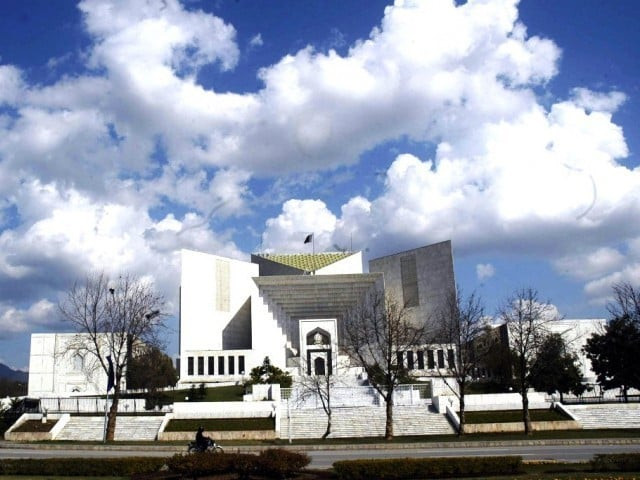CBC told to devise plan for DHA
Court directs board to consult KWSB for the purpose

The Supreme Court directed the Cantonment Board Clifton (CBC) on Wednesday to coordinate with the Karachi Water and Sewerage Board and devise a mechanism for addressing the water shortage in Defence Housing Authority (DHA).
At the hearing, CBC officials informed an apex court bench, headed by Chief Justice of Pakistan Gulzar Ahmed, that the board wasn't being supplied the required amount of water by the KWSB.
The CJP observed that two lines had been laid down to supply water to DHA.
While water is supplied through one of them, the other remains dry, he stated, adding that there should be equal distribution of water.
Then, directing the CBC to devise a mechanism in consultation with the KWSB for supplying water to DHA, the court sought a report on the matter within two weeks.
Of mangroves and defunct scheme
The SC directed the Karachi Port Trust (KPT) chairperson to immediately plant mangroves on a land previously reserved for a KPT housing scheme and submit a report to the court within two weeks.
It was hearing a case pertaining to the allotment of land for the housing society and restoration of environment in coastal areas.
When the court issued orders for immediate plantation of mangroves, the counsel for the KPT requested for more time.
The CJP, however, shot back, "Carry out the plantation at the same pace at which you sold the plots."
At this, the counsel for the KPT presented a report to the court, informing it that a board had been set up for the purpose and it had begun to implement the apex court's orders.
"The [new] KPT chairperson, though, recently assumed the charge and needs some time [to carry out the court's directives]," he added.
Following that, the CJP issued directives for the immediate plantation of mangroves on KPT land and removal of encroachments along the coastal belt, besides taking measures for its beautification.
Besides, the counsel for persons who had been allotted plots as part of the defunct housing scheme contended that the allottees be given compensation.
At this, the court stated that the allotees could approach the relevant platform to get compensations.
Railway employees dismissal
At another hearing, the court issued notices to the railway authorities on a plea seeking the reinstatement of a dismissed employee, Khan Bahadur.
Bahadur had been fired on charges made in connection with selling train tickets in black and committing financial irregularities.
Observing that Bahadur had been accused of selling tickets collectively worth Rs1.95 million, the CJP said it was brought to the court's notice that he sold a ticket for travelling from Karachi to Khanpur twice.
Bahadur, however, maintained that he wasn't posted in the railways department when the financial irregularities were said to have taken place.
"I am not guilty of anything," he stated.
At this, the court issued notices to the railway authorities.
Separately, the court dismissed the plea seeking reinstatement of another railways employee, Hado Bakhsh, who was sacked in connection with illegal occupation of the railway land.
The petitioner, Hado Bakhsh, maintained that it was not him, but his brother who had occupied the land.
At this, the court remarked that he had been accused of occupying the land along with his brother.
"You didn't comply with the laws pertaining to making an appeal in the service tribunal," the court stated, and dismissed the plea.
ANF official’s dismissal
Besides, the court rejected a plea seeking the restoration of an Anti-Narcotics Force official, who was terminated from service after hashish was found in his possession.
The CJP stated that 300 kilogrammes of hashish was found in the petitioner, Mairaj Ali Qureshi's possession.
Qureshi's lawyer, however, contended that his client had been acquitted for lack of evidence.
"This means that he is not guilty," the lawyer insisted.
But Qureshi confessed to the offence during an inquiry, the CJP pointed out.
At this, the counsel for Qureshi claimed that high officials had given drugs to Qureshi, instructing him to dispose them of.
Observing that the story narrated by Qureshi didn't correspond with facts, the court rejected his plea.
Demolition of wedding halls
Moreover, the court issued notices to the Sindh Building Control Authority and other parties, seeking their replies on a plea pertaining to the demolition of wedding halls in Korangi within a month.
At the hearing, the CJP remarked, "We don't need these many wedding halls. How can houses be converted into wedding halls?"
Published in The Express Tribune, December 31st, 2020.



















COMMENTS
Comments are moderated and generally will be posted if they are on-topic and not abusive.
For more information, please see our Comments FAQ